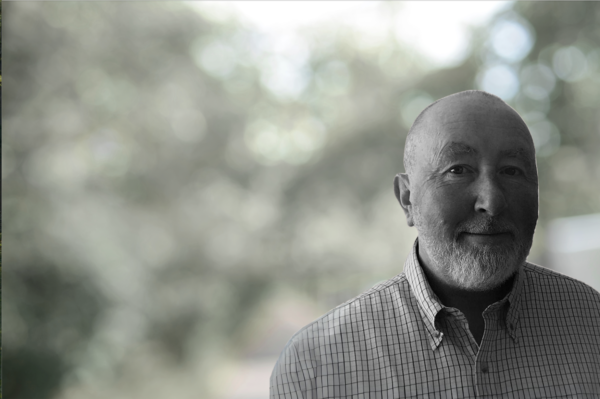Bipolar Disorder Treatment at Home
Whilst it is common for people to experience mood changes in response to certain situations, some people have more severe mood fluctuations that can affect daily living. This is referred to as bipolar disorder, or manic depression.
Individuals with bipolar disorder experience extreme highs (mania), to extreme lows (depression). These intense mood swings can last from a few hours to several months. It is a chronic (long-term) condition which affects men more than women, and typically develops in teenagers and young adults.
Bipolar disorder can feel completely overwhelming. The crushing lows pull the joy out of life, and mania can affect our judgement and behaviour, damaging our self-esteem and interpersonal relationships.
Contact Orchestrate Health today if you or a loved one require private bipolar disorder treatment at home.
What Is Bipolar Disorder?
Bipolar disorder, also known as manic depression, is a chronic mental health condition characterised by extreme mood swings. These mood swings oscillate between manic episodes, marked by heightened energy, euphoria, and impulsive behaviour, and depressive episodes, involving feelings of profound sadness, lack of interest, and hopelessness.
The main types of bipolar disorder are:
- Bipolar I Disorder: In this type, individuals experience severe manic episodes that may require hospitalisation. Depressive episodes may also occur.
- Bipolar II Disorder: Here, individuals experience milder manic episodes, known as hypomania, along with depressive episodes.
- Cyclothymic Disorder: This form of bipolar disorder involves numerous periods of hypomania and mild depression lasting at least two years.
Cause of Bipolar Disorder
Bipolar disorder results from a combination of factors, including:
- Genetics: A family history of bipolar disorder or other mood disorders can increase the risk of developing the condition.
- Brain Chemistry: Imbalances in certain brain chemicals, such as neurotransmitters, play a role in bipolar disorder.
- Environmental Triggers: Stressful life events, trauma, and significant changes can trigger manic or depressive episodes.
- Substance Abuse: Substance abuse can exacerbate symptoms and trigger bipolar episodes.
Symptoms of Bipolar Disorder
Symptoms can vary between individuals and the type of bipolar disorder they experience, but common symptoms consist of:
Manic Phase:
- Increased energy, exaggerated optimism, and self-confidence
- Feelings of grandiosity and self-importance
- A decreased need for sleep without experiencing fatigue
- Feeling irritable and aggressive behaviour
- Speaking very quickly and talking over people
- Racing thoughts and jumping from topic to topic
- Easily distracted, with poor judgement
- Engaging in impulsive or risky behaviour
- An increase in task-focused behaviours
- In severe cases, delusions, or hallucinations
Depressive Phase:
- Feelings of pessimism
- Prolonged sadness and low mood
- Uncontrollable crying
- Changes in appetite and sleep patterns
- Feelings of anger, worry, irritability and anxiety
- A loss of energy and feelings of lethargy
- Unable to concentrate
- Feelings of worthlessness
- Withdrawal from social situations
- An inability to enjoy former interests
- Thoughts of suicide or death
Types of Bipolar Disorder
There are several types of bipolar disorder which are defined by their frequency, length and pattern of episodes.
Bipolar I
This is the most common and severe form of bipolar disorder and typically involves one or more manic episodes, with or without occurring depressive episodes. The manic phase usually last around a week (sometimes longer).
Bipolar II
An individual with this form of bipolar disorder will experience shifts between less severe manic and depressive episodes. Periods of mania are not as severe as they are with Bipolar I and are referred to as hypomanic episodes. They also last for a shorter period. Depressive episodes can last for longer periods; sometimes years and are similar to clinical depression, with symptoms of low energy, low mood and feelings of worthlessness.
Cyclothymia
Cyclothymia, sometimes referred to as Bipolar III is less severe but a long-term form of the condition. It is characterised by a continual shift in mood; from hypomania to depression and typically lasts for more than two years. Symptoms are not as severe, and the individual can experience longer periods of standard moods.
Rapid Cycling
This form of bipolar disorder is diagnosed when an individual experiences four or more episodes of mania, hypomania, or depression in any twelve-month period. The episodes can occur in any combination and order and can often lead to turbulent behaviour and disrupted relationships.
We are here to help
Contact us to find the care you need today.
+44 (0)800 193 3277 or
[email protected]
Treatment for Bipolar Disorder
Many people automatically think of residential treatment when it comes to bipolar disorder, especially in more extreme episodes of mania or depression. This might be alarming to some people and could put them off getting help. However, this is not true.
It is often possible to treat bipolar disorder with little disruption to your everyday life. We deliver high-quality bespoke mental health care solutions in the comfort of your own home. Our highly trained professionals will devise a custom plan that can be delivered via video call.
You will not need to travel for appointments or share groups with anyone. You will have our undivided attention as you focus on the most important thing – recovery.
Stepped Care: The Personalised Approach to Bipolar Disorder Treatment at Home
Stepped Care ensures that you only get the level of treatment you need at that precise moment. If you need high-level, live-in support we can accommodate that, or if you just need a therapist to check in with once per week, we’re happy to provide that too.
Our team includes:
- Psychiatrists
- Psychologists
- Mental Health Nurses
- Social Workers
- Support Workers
How Does Bipolar Treatment at Home Work?
Integrated Treatment Approach
As part of our holistic approach, we also use evidence-based and innovative therapies such as Cognitive Behavioural Therapy or Bipolar Disorder-focused Dialectical Behavioural Therapy that can improve your emotional regulation and increase your stress tolerance.
In mental health recovery we believe that education and self-knowledge is key. During treatment you will also gain a greater understanding of your condition, so you will be able to recognise when you might be on the edge of a manic or depressive episode.
Medication
We can use mood stabilisers to reduce episodes of mania and depression. These are taken long-term and should make the symptoms less extreme when they occur. We can also use more fast-acting medication to curb the symptoms of depression and mania when they occur.
Live in Support
If necessary, we can arrange in-home support such as:
- Live in Mental Health Nursing (RMN)
- Visiting Mental Health Nurse
- Occupational Health
- Therapeutic Support Workers
- Recovery Coaches – mental health coaches who can provide psychosocial support, as well as life coaching


Reach Out for Help Now
If you or a loved one are being held back by bipolar disorder, Orchestrate Health’s team are here to help.
We deliver rapid assessments carried out at home by one of our psychiatric professionals, followed by a uniquely tailored care plan that best suits your needs.
Contact us today for a free bipolar disorder assessment and start living the first days of your new life.
Orchestrate Health is a private pay service and works outside of the NHS. We are committed to ensuring patients receive the highest standards of care available.
To get in touch regarding our bipolar disorder treatment at home, please call us on 0800 193 3277 or email us here












